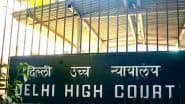Gwalior, May 4 (PTI) Vice President Jagdeep Dhankhar on Sunday advocated Direct Benefit Transfer (DBT) in fertiliser subsidies for farmers based on the US pattern and demanded that inflation be factored in while providing financial assistance to agriculturists, like the salaries of legislators and MPs.
Addressing faculty members and students of the Rajmata Vijayaraje Scindia Agriculture University in Gwalior, the vice president said, "The Prime Minister has factored in inflation while revising the salaries of legislators and MPs, so why not when supporting farmers? Assistance provided to farmers must also account for inflation".
Emphasising the need for Direct Benefit Transfer (DBT) in fertiliser subsidies, Dhankhar said, "In the United States, all aid provided to farmers is given directly, not through intermediaries. Just like we have the PM-KISAN scheme in India, the Indian government also spends heavily on fertiliser subsidies.
"It is now a matter for both reflection and research. If the same money is transferred directly to farmers, then each farmer household in India could receive at least Rs 30,000 per year. This amount must be given directly to them," he added.
He said that, currently, when the government provides fertiliser subsidies, the farmer does not truly feel its impact.
"We must ensure direct transfer of subsidies to farmers," the VP said, adding that in the US, the family income of a farmer is more than that of a common family.
He also underlined the importance of farmers' participation in the value-addition chain to improve their income and standard of living.
"A farmer's life can only change when he becomes prosperous. Children of farming families must enter new fields of work related to agriculture. Today, the largest business in the country is agricultural trade," the Vice President said.
"Just look at the enormous scale of agricultural marketing. There are mandis and there are middlemen. Financially, it is an astronomical figure. But is the farmer a stakeholder in this? No. The farmer has been reduced to being just a producer. We must change this mindset. Producing and selling immediately is not a prudent decision," he said.
Stressing that subsidies for farmers must be linked with inflation, he said, "Farmers receive indirect assistance, which we refer to as subsidies. But the first point is that any support given to farmers must be linked to inflation".
The vice president further said the Rs 6,000 aid given per year to farmers remains the same today.
"Any economist will tell you that the purchasing power of Rs 6,000 when it was introduced is no longer the same," he said.
The Vice President emphasised the critical role of farmers in making India a developed nation.
"The road to a developed India goes through the agricultural fields of our farmers. India has always been an agriculture-oriented nation, and we now stand on the brink of an agricultural revolution that will shape our future," he added.
Dhankhar stressed the importance of being sensitive to the plight and pain of farmers.
"We must work towards transforming our farmers from mere producers into 'agripreneurs' or agriculture entrepreneurs.
"When the farmer takes part in the trade and sale of their produce, they will receive a fair share of the profits. Another point is that the foundation of the agro-industrial sector is agricultural produce, but the farmer remains far removed from it. Why? Why shouldn't the farmer add value to their product? This is something we must reflect upon.
"Today, the government has adopted highly positive policies, now the farmer must step forward," he said.
He recalled former Prime Minister Lal Bahadur Shastri's slogan, Jai Jawan, Jai Kisan', which was later expanded by Atal Bihari Vajpayee to include Jai Vigyan', and now further advanced by Prime Minister
Narendra Modi to Jai Jawan, Jai Kisan, Jai Vigyan, Jai Anusandhaan'.
He said the Union government is keen to ensure the welfare of farmers and is making concerted efforts to ensure agriculturists don't face any difficulties.
"You must also work on some of the challenges being faced by farmers," he told students.
Dhankhar acknowledged perishable agricultural produce as a major challenge and cited an example of tomatoes.
"When there's over-production, it becomes a challenge. We must work in that direction.
"I believe that if post-harvest management is handled properly, it requires participation at the village level,' Dhankhar said.
He underlined the need to set up warehouses and cold storage chains which should be managed through cooperatives.
"Because in any situation, improving the farmer's life is essential as it strengthens nationalism, boosts the economy, and removes any obstacle on the path to a developed India. But all of this must happen in a seamless and coordinated manner," he said, adding that the objective should be optimisation of gain to the farmer.
On the occasion, Dhankhar appealed to students to keep the nation above all interests and said Bhartiyata is our identity and there is no dharma above Rashtra Dharma.
"Rajamata's life was an inspiration. To her, nationalism was of paramount importance. She lived a life of sacrifice and dedication. Today, Bharat is facing the Pahalgam challenge....but today there is a powerful Bharat with an able leadership," he said.
Dhankhar asked students and faculty members to "always keep the nation first. Nothing is more important than the national interest".
(This is an unedited and auto-generated story from Syndicated News feed, LatestLY Staff may not have modified or edited the content body)













 Quickly
Quickly













